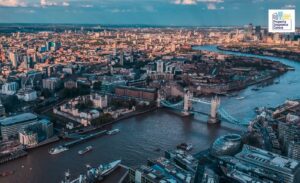What do you need to know about Martyn’s Law

Following the terrorist attack on 22nd May 2017, where suicide bomber Salman Abedi detonated a homemade shrapnel bomb at Manchester Arena, one woman decided to lobby for change: Figen Murray.
Figen Murray’s son, Martyn Hett was one of 22 people killed in the attack that injured over 1,000 people as they were leaving the Ariana Grande concert.
After failing to see any stricter security measures at venues just one year after the bombing, she decided to launch a campaign for a new legislation called Martyn’s Law.
What is Martyn’s Law?
This legislation hopes to reduce opportunities for terrorists and act as a deterrent from targeting areas where people congregate. The goal is not to add unnecessary restrictions to hinder people at venues but rather to keep the public secure. Under Martyn’s Law venues must do everything in their power to keep customer’s safe.
In 2021, after public consultation, the government introduced new consultation also known as the ‘Protect Duty Act’ or ‘The Terrorism (Protection of premises) draft Bill’ thanks to Figen Murray’s campaign.
It will require all organisations deemed to have “qualifying activities” to legally have certain security measures in place to reduce the risk of future terrorist attacks.
Who does Martyn’s Law affect?
The law will apply to any business which has the following criteria:
Capacity of over 100 people
Employs over 250 members of staff (even if they work in different locations)
Organisations responsible for public spaces where people are likely to gather such as the beach or parks.
The law will apply to all premises that allow the public to enter including:
Events and festivals (including charity fundraising events)
Retail
Food and drink establishments (including nightclubs)
Entertainment (including cinemas, theatres and arenas)
Recreation and leisure (including public sports/leisure centres, ice rinks and gyms)
Sport grounds
Museums and galleries
Government buildings
Public areas (libraries, conference centres, exhibition halls and other venues for hire)
Visitor attractions
Hotels, holiday parks and similar holiday accommodation
Places of worship
Health establishments
Education and childcare
Public transport (including train stations, ports and airports)
What tier will my business be under?
As part of the Home Office’s latest consultation which took place between February and March, they proposed different requirements for different tiers, as follows:
Standard Tier – Premises with a capacity of 100 – 799 individuals e.g. many retail stores, village halls, bars, restaurants, and theatres.
Enhanced Tier – For premises and qualifying public events which have a capacity of 800 individuals or more e.g. large shopping centres, concert halls and sports stadia. The Enhanced Tier also includes certain events with equivalent capacity.
There are some premises that will be classed as Standard Tier irrespective of their maximum capacity. This includes places of worship (unless they charge a fee for admission) and premises used for childcare or primary, secondary, or further education (but not higher education). This is due existing regulations on safety and safeguarding policies and procedures being in place in their establishments.
Following feedback from the draft Bill which was published in May 2023, the government has revised its approach to the Standard Tier to try to be low-to-no financial cost and low burden to put into process, yet still save lives.
The latest consultation is solely focused on the requirements proposed in relation to the Standard Tier. Further information including the requirements of the Enhanced Tier is expected to follow in due course.
Speak to a member of our team
If you’re not sure about how Martyn’s Law will impact your insurance, speak to our team on 01564 730 900.






